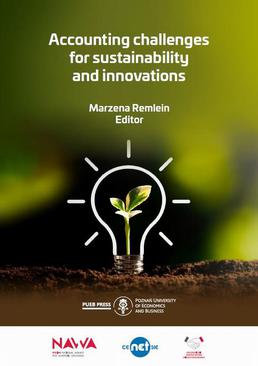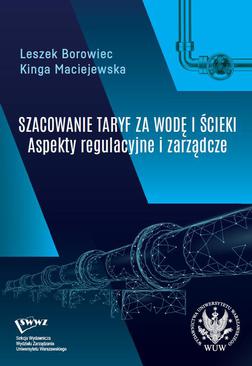
Consequences of Non-Financial Reporting Directive in Poland
- ebook , accounting, sustainable development, corporate social responsibility – CSR, non-financial reporting
4,5
- Autorzy:
Ewa Różańska ,
Łukasz Matuszak
- Wydawnictwo:
Uniwersytet Ekonomiczny w Poznaniu
- ISBN:9788382111866
- Format:PDF
0,00 zł
Produkt niedostępny
This monograph is an attempt to contribute to the new but currently dynamically developing direction of basic research in the discipline of “economics and finance” concerning non-financial reporting. The novelty of this publication lies in the following: (1) it disentangles the quantity of non-financial disclosure into five thematic aspects (environment, employees, human rights, anti-corruption and community involvement) and six content items (business model, non-financial KPIs, policies — including due diligence processes implemented and outcomes of these policies, principal risks and managing these risks) and develops individual nonfinancial indices in the cross-section of these dimensions, taking into account the requirements of the Directive 2014/95/EU; (2) it focuses on the rarely examined specific subsets of non-financial reporting, for example, anti-corruption, human rights, community involvement and risk-related disclosure; (3) it disaggregates the quality of non-financial disclosure into materiality and reliability and develops self-constructed indices applying the non-financial reporting regime introduced by the Directive and EU Guidelines; (4) it is the first study to test the effectiveness of the Directive, comprehensively taking into account the quantity and quality of disclosures over such a long period of time — three years before and three years after the implementation of the Directive; (5) it explores the relevant determinants of non-financial disclosure, including company characteristics (size, profitability, leverage, industry), corporate governance measures (state ownership, foreign ownership, CSR committee), primary stakeholders (investors, creditors, consumers and employees), secondary stakeholders (environment, regulators, standard setters, e.g., GRI and NFIS), experience in sustainability, stand-alone sustainability reports, external assurance, international presence, public expectations, participation in the UN Global Compact as well as inclusion in the Respect Index.





